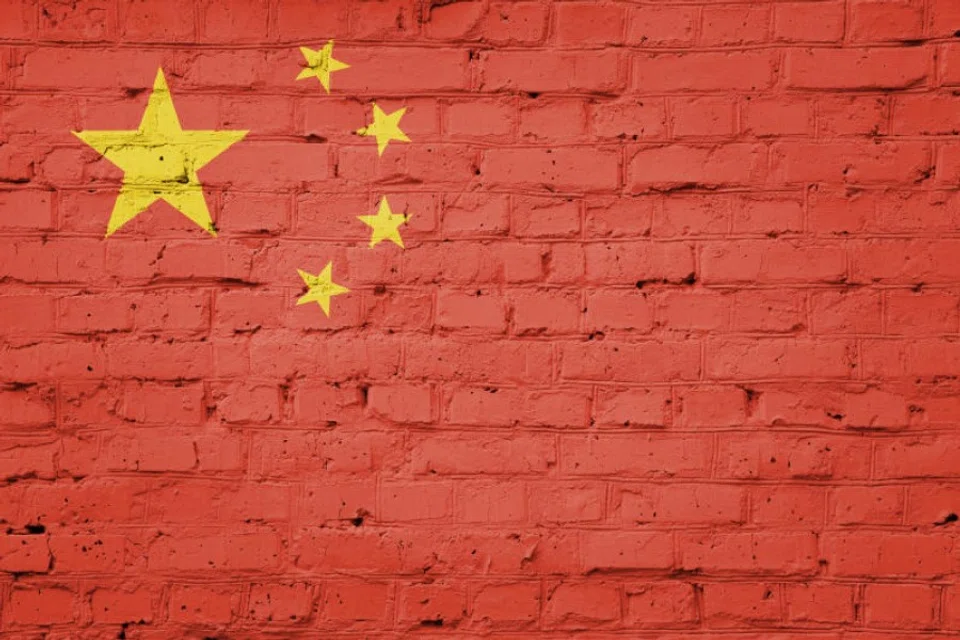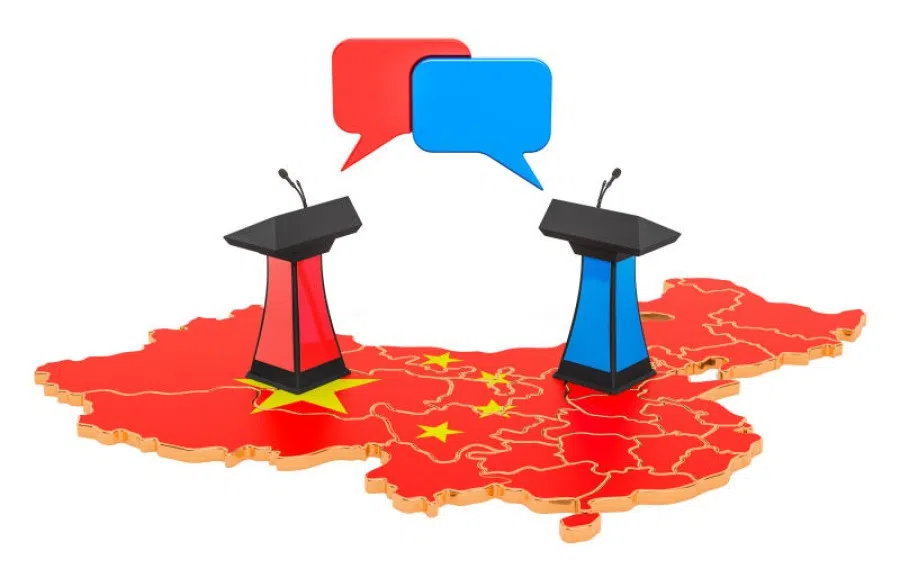How not to get lambasted on the world stage: Some advice for China
China has made efforts to be accepted on the international stage. These efforts are not always well-received.

China's officials often fret that what they say on the international stage is not heard and not convincing. Since the founding of the People's Republic of China in 1949, the Communist Party of China (CPC) has achieved independence for its people, overcoming poverty and weakness. Following 40 years of rapid reform and opening up in China, the world now marvels as it rises at an unprecedented speed and scale. But this has also roused widespread fear and suspicion of China. In the words of the CPC, China is no longer going hungry or getting roughed up, but it is still heavily criticised.
China's economic miracle has benefited its people and provided plenty of opportunities for the rest of the world. So why does it continue to be criticised? For many reasons, including how the world is taking some time to get to know China, leaving it inevitably misunderstood and misjudged. China's rise has also threatened the status of incumbent powers and drawn unhappiness and resentment. Plus, as a new entrant on the world stage, it has not yet gained enough experience and confidence. Its inflexible system has shackled diplomats and other officials at international events; they hold back and do not say what they think, are unapproachable and detached, and overreact to sensitive issues.
Can China create a new narrative?
Another reason: the mainstream narrative finds it hard to appreciate China's achievements and cannot explain them; on its part, China has been unable to integrate into and change the current narrative, so it has tried to construct its own.
Fighting for speaking rights within the same narrative and building a new one are two different challenges. With China's growing might, the former is more practical while the latter cannot be achieved through hard power alone. That depends on how the world agrees with and accepts China's values, behaviour, rhetoric and policy aims, which would boost its soft power. That will be a long and complex process.
In the short term, China aims to allay the doubts and fears of other countries and lessen the resistance to its rise. For that, it will have to be patient and rational, communicating with the world in a common language to gain understanding and trust. And this "common language" can only come from the mainstream narrative.

Liberalism as a universal narrative
Values are at the centre of any narrative. Without values, there is no common language. The mainstream narrative coming out of the West is a hybrid based on liberalism. It is dominant not just because of the West's strength and the Western media's leading position, but also because it puts across what most people want, including the desire for modernisation.
These values are rooted in resistance against the oppression, fatalism and naivety commonly found in pre-capitalist societies and politics. Historically, such resistance has been a strong force for progress. As a synonym for modernisation, progress still has its appeal and any new narrative jostling to take its place will have to beat it at its own game.
The liberal narrative is not without problems. It is ill-suited as a language of policy, unable to adapt to the new age of technological revolution and globalisation. Utilitarian and one-dimensional from the start, it first appeared as an ideological weapon for revolution, meant to break what was already there rather than establish something new. Not only is the liberal narrative unable to answer many questions in human progress, it often prescribes the wrong medicine, leading to disasters in third-world countries and setbacks in the West.
However, this is not because its values are wrong. The problem lies in how these liberal values are inherently imperfect and non-comprehensive. When pushed through automatically and with bias, these create problems in the development of policies and institutions.
The situation is exacerbated by the hypocrisy and double standards of Western countries, which wield their influence to gain other objectives. Their efforts to spread liberalism have led to disastrous results, such as colonialism, slave trading, infighting, and racial and religious conflicts. Long-term political unrest, social division and extremism have also resulted in economic backwardness and regression, to say nothing of the attendant problems of famine, epidemics and refugees.
Still, the values of liberalism continue to be the mainstream, unshaken by the roiling political and economic turmoil in recent years. The populism sweeping through the West, and its protest movements, is not opposed to these values; rather, the call has been to truly fulfil them.
Objecting to universal values draws criticism, and not just from the West. These values are universal because they are personally appealing. So far, nobody, including China, has been able to offer a set of values that matches up.
Similarly, in countries with smooth economic growth (including China), the younger generation generally harbours more "modern" (read as: liberal) values than previous generations. In countries where the economy is backward and the politics dubious, liberalism's values and beliefs remain the weapons of resistance for the youth.
When people criticise liberalism, they focus on its one-sided dogmatism (being "politically correct"), rather than a denial of its fundamental values - of human rights, democracy, the rule of law, equality, freedom of speech, freedom of religion, the safety of persons and property. These values still hold the moral high ground, so their appeal lies far beyond the West. They have become universal.
Objecting to universal values draws criticism, and not just from the West. These values are universal because they are personally appealing. So far, nobody, including China, has been able to offer a set of values that matches up.
China's criticism of "universal values" addresses the attempts of Western politicians towards a colour revolution and is not an attack on the values per se. But it overlooks the impact that objecting to universal values has on most people in the West and many developing countries. As a result, the CPC's image has been damaged; the party has become a symbol of evil, and is criticised and lacks a voice in the mainstream narrative. That is why anti-China voices build up each time an election is held in the West. One also sees this fear and demonisation of China during the recent protests in Hong Kong.
The right way for a rising superpower
So if one cannot do better than the mainstream narrative, one has to accept and leverage it. This does not contradict the CPC's interests. Since reform and opening up, China has made long strides in most liberalist values. The core socialist values that the CPC so strongly advocates - prosperity, democracy, being civilised, harmony, freedom, equality, justice, the rule of law, patriotism, professionalism, integrity and goodwill - are also in line with many of liberalism's ideas.
This means China has to participate more effectively in the mainstream narrative and, in refreshing that narrative, find its position and edge. It also has to help that narrative grow beyond liberalism to become a more complete, practical narrative, one that retains the values of liberalism while also fixing its flaws. That is how China can avoid criticism and gain speaking rights.
Of course, to achieve this, China will have to improve its domestic governance. Historically, China has always enjoyed the narrative of a civilisation under single rule. It has never failed at assimilating foreign "barbarians", and is accustomed to doing what it wants and putting the "China stamp" on everything.

But today's globalised narrative calls for common fundamental values that individuals of different civilisations, cultures, races, religions and status are willing to accept and practise. A power like China that carries on with a monologue will not bring about a community unified by a common language of values.
One of China's main diplomatic strategies is to build a community bound by a common fate, so the narrative it chooses should also be inclusive and contribute to building a common global civilisation. That means it cannot avoid the mainstream narrative. Few will appreciate China going its own way and could lead to all sorts of consequences, from a lack of mutual understanding to sparking a new Cold War in which a common language and value system makes it easy for other countries to join the opposing camp, complicating China's rise.
The US has already defeated five of the world's "number two" challenger economies. The lesson is that staying calm, patient and adaptable will keep a rising global power from expanding too fast and making the wrong moves.
Recently, China's diplomatic rhetoric has grown sharp and tough, with strong shades of the Mao Zedong era. Foreign media have described it as "wolfish" language. Is this "the art of the deal", to borrow a popular turn of phrase? A resolve to break with the West and go it alone? Or a lack of patience and direction? Indeed, it is worth noting that such language is self-gratifying and would be cheered on by the Chinese public.
However, while any other country might gain diplomatic prestige and respect by pulling a move like that, the same can't be said for a rising superpower like China. These ploys might backfire instead and distance its allies while fuelling the "China threat" theory.
The US has already defeated five of the world's "number two" challenger economies. The lesson is that staying calm, patient and adaptable will keep a rising global power from expanding too fast and making the wrong moves. The late Chinese leader Deng Xiaoping was wise with his famous admonition to keep a low profile and not to take a leadership role (韬光养晦,绝不当头). The US remained isolationist even decades after forging ahead as the world's biggest power. That was also very wise.
This article was first published in Lianhe Zaobao.


![[Big read] When the Arctic opens, what happens to Singapore?](https://cassette.sphdigital.com.sg/image/thinkchina/da65edebca34645c711c55e83e9877109b3c53847ebb1305573974651df1d13a)


![[Video] George Yeo: America’s deep pain — and why China won’t colonise](https://cassette.sphdigital.com.sg/image/thinkchina/15083e45d96c12390bdea6af2daf19fd9fcd875aa44a0f92796f34e3dad561cc)